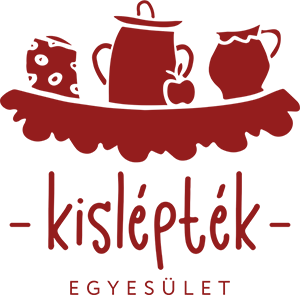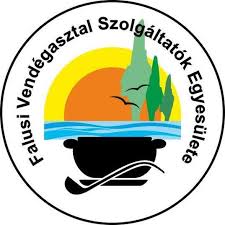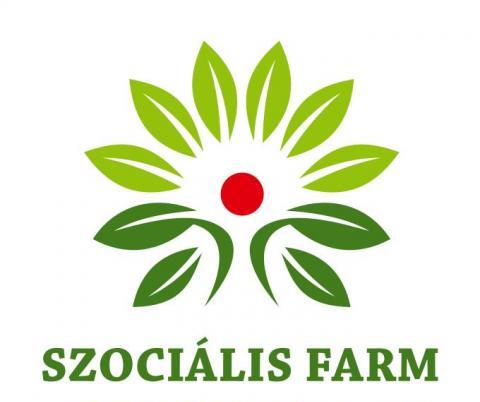
FOSTER
FOSTER is an ambitious Horizon Europe-funded project that will build food system capabilities, knowledge and new governance mechanisms for scientists, citizens and policymakers. FOSTER will gain insight into how knowledge and innovation systems (K&I) can be adapted, made more inclusive, better governed, and equipped to transform Europe’s food system, capable to address the emerging challenges of nourishing Europe in a healthy and sustainable way.
FOSTER Platform
In FOSTER, we aim to share science-based information about food systems with the public. For that, we established our FOSTER Platform, the place for communication, learning and foresight results. The FOSTER digital Platform was updated with the links from the Horizon Scanning activities – the links were rechecked, and some new links were added.
The FOSTER context scenarios are also available on the platform. Meanwhile, we prepared our repository of other EU projects, where you can get some useful information about food-related projects and get links to these projects. We would also like to know your questions about food systems and their futures, therefore, waiting for your questions or suggestions!
Click on “ask your question” button to leave your questions. |
|---|
|
| Network analysis
The development of the agricultural knowledge and innovation system (AKIS) over the past decades presents significant achievements. The AKIS has successfully linked farmers to innovation networks in technology development, education and finance, under the Common Agricultural Policy (CAP). However, the AKIS networks are centred on primary production systems, and several food system actors and approaches are underrepresented. Various expert reports on EU’s innovation policy on food systems have expressed the need for a reorientation of innovation towards the transformation of food system outcomes and better embedding of all actors across the entire European food system. FOSTER aims to develop diagrams for food knowledge and innovation system (FOKIS) in the Change Driven Initiatives (CDIs) countries (Hungary, Germany, Netherlands, Serbia and Spain). These diagrams will be centred on the CDIs, and include relevant FOKIS actor categories, such as public authorities, research and education organisations, third sector organisations/ associations, third sector NGOs, consumer associations, incubators, accelerators, investors and financial agents, along with their linkages and knowledge flows. Additionally, FOSTER aims to establish a set of actions for CDIs to implement, either to create new relationships not reflected in the current diagram or to strengthen the existing weak ones. The first stage was to gather and analyse information about networks of our CDIs. Previously, the CDIs were proposed to fulfil an excel sheet, the so-called “stakeholder tool”, indicating not only their current and desired stakeholders, but also the scope of their connection (including current and desired engagement status, impact of stakeholder on the CDI, strategic importance of the connection and knowledge directional flow). This work helped us to identify how weak or strong these connections are, and to categorize the stakeholders into categories and subcategories. We defined the main categories: government agencies, research, technology providers, NGOs, education, advisory, consultancy and law, financial institutions, providers, producers and retailers. Then, we did the analysis of categories of the CDIs stakeholders and visualized information in the stakeholder maps of each initiative. |
|---|
|
| Stakeholder map of the FOSTER CDI Delta Foundation Our next step is to compare the stakeholder maps of the CDIs to identify similarities and differences, and to engage the CDIs in some future actions. |
|---|
|
Deliverable in work
We are also busy working on the Deliverable 4.1, which will provide insights into the policy options for improving the governance of the knowledge and innovation system in Europe from a top down and bottom-up perspective. FOSTER aims to critically reflect on the current system and if it is fit for purpose in the food system transition. More information regarding this will be shared later. |
|---|
|
|
| FOSTER two-day event in Brussels
On October 9th and 10th 2024, FOSTER had a two-day event, comprising a Project Meeting and a Joint Workshop of the FOSTER consortium and the FOSTER science-policy expert panel. The event was held in Brussels, Belgium at the Representation of the State of Lower Saxony to the European Union. Project meeting 2024!
On October 9th, project members – including academic partners, CDIs and the Chair of the FOSTER Expert Panel, Janet Dwyer (University of Gloucestershire) – came together to reflect on FOSTER’s progress over the past two years. The main theme was exploring FOSTER’s contributions to transforming the food system and enhancing knowledge and innovation within it. |
|---|
|
| During the meeting, members shared project status updates, recapped recent Summer School activities, and discussed foresight tools used in those sessions. CDIs shared experiences, successes and challenges from their recent work, following by a dedicated session focused on their stakeholder maps. The project’s communication and dissemination activities were reviewed, and members previewed the first version of the FOSTER video, soon to be shared with a wider audience. More information you may read here. |
|---|
|
| Joint Workshop of FOSTER consortium and FOSTER science-policy expert panel  On October 10th, the Joint Workshop allowed CDIs and expert panel members to meet in person for the first time. This exchange facilitated a dialogue aimed at improving governance and policies that foster knowledge and innovation. The project’s ultimate goal is to identify ways to adapt, include, and govern knowledge and innovation systems that help transform Europe’s food system to enhance public health, protect the environment, promote fairness, and support sustainable businesses. On October 10th, the Joint Workshop allowed CDIs and expert panel members to meet in person for the first time. This exchange facilitated a dialogue aimed at improving governance and policies that foster knowledge and innovation. The project’s ultimate goal is to identify ways to adapt, include, and govern knowledge and innovation systems that help transform Europe’s food system to enhance public health, protect the environment, promote fairness, and support sustainable businesses.
The FOSTER Expert Panel, established to translate research insights into policy recommendations, comprises experts in policy processes. In this first Sci-Pol Expert Panel meeting, participants explored a range of EU-level policy instruments that could impact food initiatives. This direct exchange with food initiatives provided valuable insights for policies supporting the shift toward healthier, greener, and more resilient food systems in Europe |
|---|
|
|
| Throughout various sessions, CDIs presented their missions and visions, sharing insights and exploring opportunities for innovation and transformation with the expert panel. Later, invited policy advisors joined for informal discussions with CDIs, fostering connections between food initiatives and formal research, innovation, and knowledge structures. This gathering introduced participants to the FOSTER project’s mission and vision, the participating food initiatives, and relevant EU policy instruments, setting the stage for continued collaboration in promoting food system transformation. |
|---|
|
Project members – who are they?
Sigrid Hettinga
(Transitie Coalitie Voedsel)
 Being born not long after Club of Rome published her “Limits to Growth’, one could argue that I have been on the road to sustainability my entire life. After my Masters in Business Administration, I worked within and with business working towards a sustainable future for about fifteen years. Then there was this pivotal moment when I realized that we need to change the system if we want these sustainable businesses to flourish. Since 2014, I have been developing programs for sustainable system change, now applying this knowledge in the Food Transition Coalition in The Netherlands. While it is clear that we need a vision of the future in order to get there, I am as much interested in pathways to get towards the desired situation. FOSTER to me is a joint effort to define those pathways.
Being born not long after Club of Rome published her “Limits to Growth’, one could argue that I have been on the road to sustainability my entire life. After my Masters in Business Administration, I worked within and with business working towards a sustainable future for about fifteen years. Then there was this pivotal moment when I realized that we need to change the system if we want these sustainable businesses to flourish. Since 2014, I have been developing programs for sustainable system change, now applying this knowledge in the Food Transition Coalition in The Netherlands. While it is clear that we need a vision of the future in order to get there, I am as much interested in pathways to get towards the desired situation. FOSTER to me is a joint effort to define those pathways.
Gabriela Perez
(FabLab)
 After my journey through corporate, public, private, and academic institutions, particularly in relation to food and the FOKIS initiative, the path forward is increasingly clear: to develop integrated and sustainable systems. Building these virtuous systems requires a constant connection between research, policymaking, and civic engagement. Only through ethical collaboration, grounded in sustainability and respect for the planet, we can drive the necessary changes, and FOSTER helps us to imagine that future.
After my journey through corporate, public, private, and academic institutions, particularly in relation to food and the FOKIS initiative, the path forward is increasingly clear: to develop integrated and sustainable systems. Building these virtuous systems requires a constant connection between research, policymaking, and civic engagement. Only through ethical collaboration, grounded in sustainability and respect for the planet, we can drive the necessary changes, and FOSTER helps us to imagine that future.
The recent SCI-POL Expert Panel meeting in Brussels brought these essential topics to the table, sparking an inspiring discussion and paving the way for meaningful work.
My time at the FabLab has reinforced this vision, showing how Fab Labs act as vital bridges between research, citizens, and at times, policymakers. These spaces not only foster co-creation and learning but also demonstrate the power of community-driven innovation for a sustainable future.
Theresa Nienaber
(DIL)
 I have a background in food production and business and worked in the food industry before joining the DIL, coordinator of the FOSTER project. We are responsible for the project’s technical coordination, administrative management, quality control, and risk management, ensuring each aspect contributes to FOSTER’s goals. To me, the FOSTER project represents an opportunity to reimagine Europe’s food system by integrating diverse knowledge and innovation from all corners of society. By bringing together scientists, change-driven initiatives, and policymakers, we aim to co-create solutions that are not only sustainable but also inclusive. This is a crucial step towards building a more resilient and equitable food system for future generations.
I have a background in food production and business and worked in the food industry before joining the DIL, coordinator of the FOSTER project. We are responsible for the project’s technical coordination, administrative management, quality control, and risk management, ensuring each aspect contributes to FOSTER’s goals. To me, the FOSTER project represents an opportunity to reimagine Europe’s food system by integrating diverse knowledge and innovation from all corners of society. By bringing together scientists, change-driven initiatives, and policymakers, we aim to co-create solutions that are not only sustainable but also inclusive. This is a crucial step towards building a more resilient and equitable food system for future generations.
Hohenheim’s Agricultural University Day At the University of Hohenheim’s Agricultural University Day, our FOSTER project partners Uli Ostarhild from the Stuttgart Food Policy Council and Prof. Verena Seufert from the University of Hohenheim had the opportunity to discuss the question “Working the fields together – how can practice and science research together at eye level?”. The discussion took place in a fishbowl format and included several ‘tandems’, i.e. project partners from both science and practice, showcasing examples of transdisciplinary research projects in an agri-food system context. The FOSTER team provided an example from the civil society perspective, while other examples came from transdisciplinary projects focusing on production and processing. But what does transdisciplinary research actually mean? In contrast to disciplinary or interdisciplinary research, in transdisciplinary research stakeholders from practice are involved in the scientific process on an equal footing from the outset. |
|---|
|
|
| As the Stuttgart Food Policy Council, we are starting our triangle project in the next few weeks together with the FOSTER team from Prof. Verena Seufert, and a large industrial company as a third (practice) partner on the topic of sustainable regional public catering. We are very confident that this research approach within the framework of FOSTER food systems will lead us to direct and effective solutions for more sustainable public catering. Our vision is to make a contribution to a transition towards a more climate-friendly diet with many stakeholders, locally in Stuttgart, along the entire supply chain, from production to the dining table. |
|---|
|
| Next year, FOSTER will have its third in-person Summer School! Annual Foster co-learning in Summer Schools aims to build capacities in working within transdisciplinary arenas across sectors based on RRI principles including gender aspects, ethics and open science. With this co-learning, we aim to collaborate for sharing knowledges on food system functioning and transformation. The event will be held in Hungary in May 2025! More information soon. |
|---|
|
www.fosterfoodsystem.eu
contact@fosterfoodsystem.eu
| This project is funded by the European Union under the Grant Agreement n.º 101059954. Views and opinions expressed are however those of the author(s) only and do not necessarily reflect those of the European Union. Neither the European Union nor the granting authority can be held responsible for them. |
|---|

 Being born not long after Club of Rome published her “Limits to Growth’, one could argue that I have been on the road to sustainability my entire life. After my Masters in Business Administration, I worked within and with business working towards a sustainable future for about fifteen years. Then there was this pivotal moment when I realized that we need to change the system if we want these sustainable businesses to flourish. Since 2014, I have been developing programs for sustainable system change, now applying this knowledge in the Food Transition Coalition in The Netherlands. While it is clear that we need a vision of the future in order to get there, I am as much interested in pathways to get towards the desired situation. FOSTER to me is a joint effort to define those pathways.
Being born not long after Club of Rome published her “Limits to Growth’, one could argue that I have been on the road to sustainability my entire life. After my Masters in Business Administration, I worked within and with business working towards a sustainable future for about fifteen years. Then there was this pivotal moment when I realized that we need to change the system if we want these sustainable businesses to flourish. Since 2014, I have been developing programs for sustainable system change, now applying this knowledge in the Food Transition Coalition in The Netherlands. While it is clear that we need a vision of the future in order to get there, I am as much interested in pathways to get towards the desired situation. FOSTER to me is a joint effort to define those pathways. After my journey through corporate, public, private, and academic institutions, particularly in relation to food and the FOKIS initiative, the path forward is increasingly clear: to develop integrated and sustainable systems. Building these virtuous systems requires a constant connection between research, policymaking, and civic engagement. Only through ethical collaboration, grounded in sustainability and respect for the planet, we can drive the necessary changes, and FOSTER helps us to imagine that future.
After my journey through corporate, public, private, and academic institutions, particularly in relation to food and the FOKIS initiative, the path forward is increasingly clear: to develop integrated and sustainable systems. Building these virtuous systems requires a constant connection between research, policymaking, and civic engagement. Only through ethical collaboration, grounded in sustainability and respect for the planet, we can drive the necessary changes, and FOSTER helps us to imagine that future. I have a background in food production and business and worked in the food industry before joining the DIL, coordinator of the FOSTER project. We are responsible for the project’s technical coordination, administrative management, quality control, and risk management, ensuring each aspect contributes to FOSTER’s goals. To me, the FOSTER project represents an opportunity to reimagine Europe’s food system by integrating diverse knowledge and innovation from all corners of society. By bringing together scientists, change-driven initiatives, and policymakers, we aim to co-create solutions that are not only sustainable but also inclusive. This is a crucial step towards building a more resilient and equitable food system for future generations.
I have a background in food production and business and worked in the food industry before joining the DIL, coordinator of the FOSTER project. We are responsible for the project’s technical coordination, administrative management, quality control, and risk management, ensuring each aspect contributes to FOSTER’s goals. To me, the FOSTER project represents an opportunity to reimagine Europe’s food system by integrating diverse knowledge and innovation from all corners of society. By bringing together scientists, change-driven initiatives, and policymakers, we aim to co-create solutions that are not only sustainable but also inclusive. This is a crucial step towards building a more resilient and equitable food system for future generations.


 On October 10th, the Joint Workshop allowed CDIs and expert panel members to meet in person for the first time. This exchange facilitated a dialogue aimed at improving governance and policies that foster knowledge and innovation. The project’s ultimate goal is to identify ways to adapt, include, and govern knowledge and innovation systems that help transform Europe’s food system to enhance public health, protect the environment, promote fairness, and support sustainable businesses.
On October 10th, the Joint Workshop allowed CDIs and expert panel members to meet in person for the first time. This exchange facilitated a dialogue aimed at improving governance and policies that foster knowledge and innovation. The project’s ultimate goal is to identify ways to adapt, include, and govern knowledge and innovation systems that help transform Europe’s food system to enhance public health, protect the environment, promote fairness, and support sustainable businesses.

















